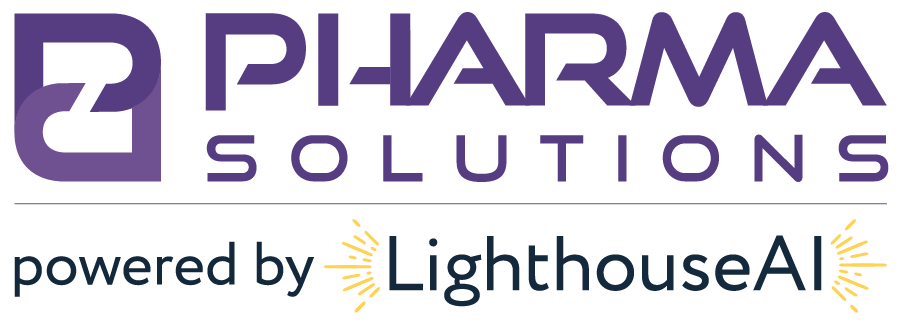DEA Insights from the 2018 DEA Diversion Conference
Background
In a letter dated May 23, 2018, AmerisourceBergen threatened to stop supply to Bernie’s Pharmacy because of “an elevated percentage of opioid purchasing…specifically, it was noted that in recent months between 25-50% of all pharmacy purchases of Rx products in dosing units were represented by opioids,” wrote ABDC vice president David May.
Bernie’s Pharmacy promptly filed a lawsuit three months later citing that the “unlawful refusal to provide pharmaceutical products to Bernie’s…despite a Prime Vendor Agreement that requires [ABDC] to provide the ordered pharmaceuticals through at least November 30, 2018.”
The preliminary injunction was successful and requires ABDC to continue processing orders.
AmerisourceBergen’s (and the Entire Drug Wholesale Industry’s) Frustration
In response to the successful injunction, AmerisourceBergen maintains that “distributors should not be asked to function as law enforcers or regulators.” The requirement for drug wholesalers to identify and report bad actors has historically been met with opposition because the bad actors that enable drug diversion are specifically rogue prescribers and pharmacists – individuals that have a moral and professional obligation to the health of the American public. In a written statement submitted to the House of Representatives in May 2018, ABDC states that the company “does not control how any medications we deliver are prescribed, dispensed, or ultimately used.” The drug wholesale industry, accordingly, should only be responsible for the physical distribution and logistics of products, as directed by licensed medical professionals.
The company also took the opportunity to express its frustration regarding the need for more clarity on Suspicious Order Monitoring requirements in the CFR, stating “greater regulatory guidance on how to execute our responsibilities is both welcome and necessary.”
Per 21 C.F.R., “suspicious orders include orders of unusual size, orders deviating substantially from a normal pattern, and orders of unusual frequency.”
The SOM system requirement has caused a lot of frustration within the industry because, quite simply, the requirement is vague: three sentences describe a system, policies, and procedures that could have annual budgets easily in the millions of dollars and directly affects multiple aspects of the company. The resultant legal action from the SOM system requirement has taken down massive companies, including Miami-Luken, a company that was in business for over 50 years.
Awkward…
The legal fracas puts AmerisourceBergen, Bernie’s Pharmacy, and the DEA in an awkward position. AmerisourceBergen’s policy quite clearly states that the company “ends relationships with customers that it determines have an increased potential for diversion.” However, with the litigation, the company will be forced to continue shipping orders, controlled or otherwise. For Bernie’s Pharmacy, the litigation brings national attention to the independent retail pharmacy – will other wholesalers be willing to transact business with the pharmacy in the future? And finally for the DEA – if there is foul play, how does the DEA react?
Recent Senate Investigations
Senator Claire McCaskill, D-Mo., released a report in July that was a part of a robust investigation into the causes of the opioid epidemic, as it relates to the pharmaceutical supply chain industry. The McCaskill report shows that the three major drug wholesalers – McKesson, AmerisourceBergen, and Cardinal Health – together shipped 1.6 billion doses of opioids into Missouri from 2012 through 2017.
“It’s staggering. Over six years we averaged 260 pills for every man, woman, and child in Missouri,” McCaskill said in a statement.
“The opioid crisis these pills have fueled is a failure of policy and oversight by the government and a failure of basic human morality on the part of many pharmaceutical companies and distributors — a failure that has destroyed families and communities all over our state.”
Key Takeaway
Although this unusual event is an interesting case, it is important to remember: a rock-solid anti-drug diversion program is crucial for every company that distributes controlled substances.
An anti-drug diversion program should include; (1) customer questionnaire; (2) site visits; (3) verification of the pharmacy’s DEA registration and state licensure; (4) review of the pharmacy provided information by a trained team member; and (5) an online investigation (including internet licensing and disciplinary searches) for the identified pharmacy, owner, and pharmacist-in-charge.
NavigateSOM & DEA Solutions
Pharma Solutions offers a suite of DEA solutions to ensure companies are in line with DEA Regulations. This suite of solutions includes a Suspicious Order Monitoring software called NavigateSOM.
Suspicious order monitoring software helps manufacturers and distributors make sure that they are in compliance with DEA regulations. NavigateSOM uses 13 different algorithms to flag suspicious orders; NavigateSOM then allows for users to see the exact reason for the flag and upload investigation materials for rock-solid “DEA defensibility.” Other capabilities include, but are not limited to, easy API integration and expanded graph reporting per NDC, family, and class of trade.
Check out our website
here to learn more about NavigateSOM!
About Us
Based just outside of Philadelphia, Pharma Solutions provides actionable guidance and excellent administrative services with a focus on client care across Compliance, Commercial, and Quality solutions. Our mission is to improve the health and welfare of the American public by providing solutions and implementing best practices for companies in the pharmaceutical supply chain.




0 Comments